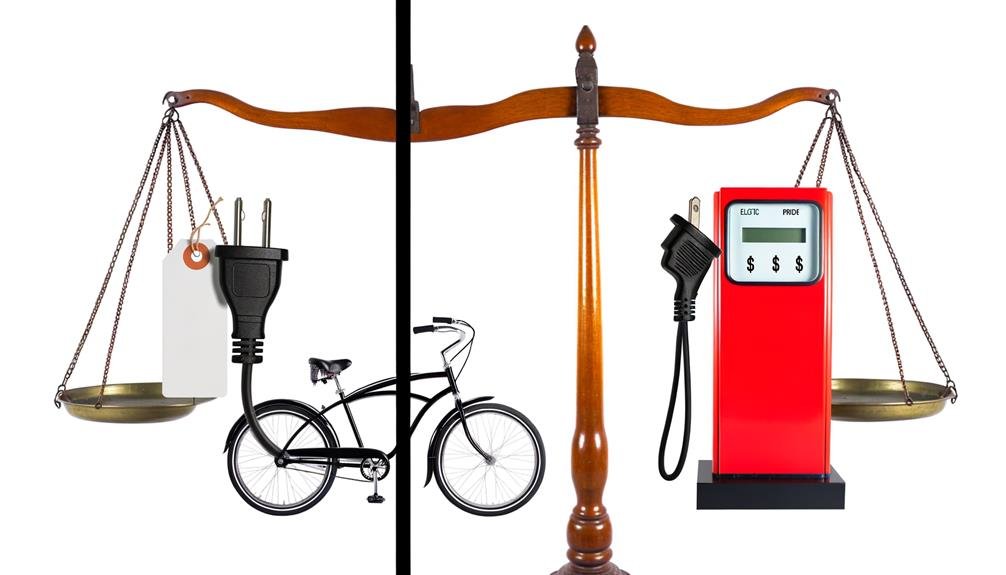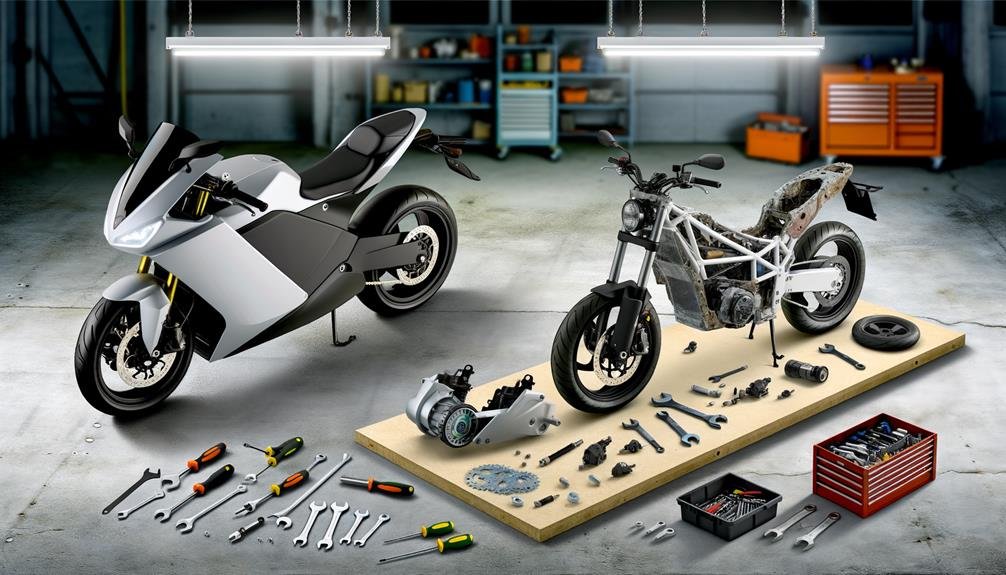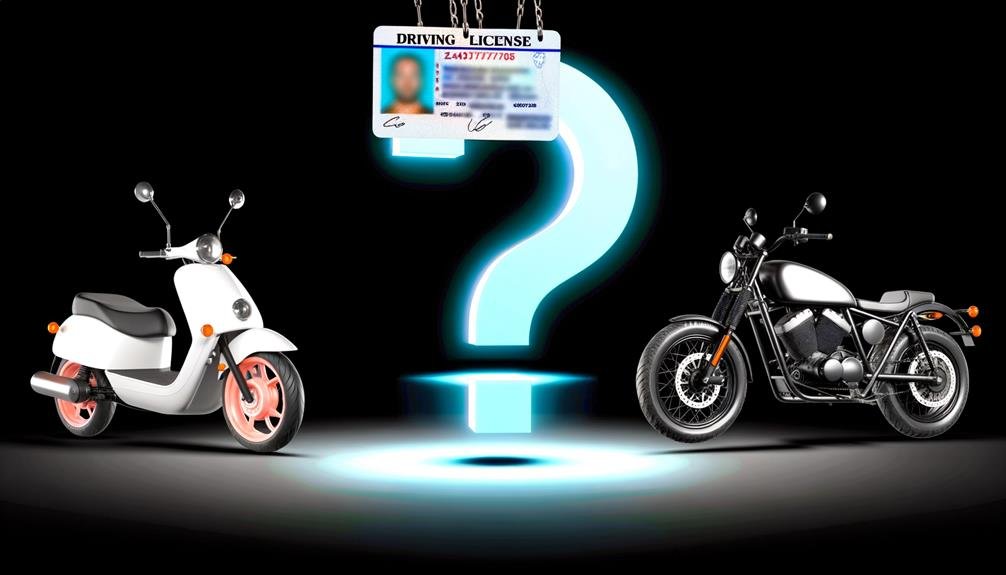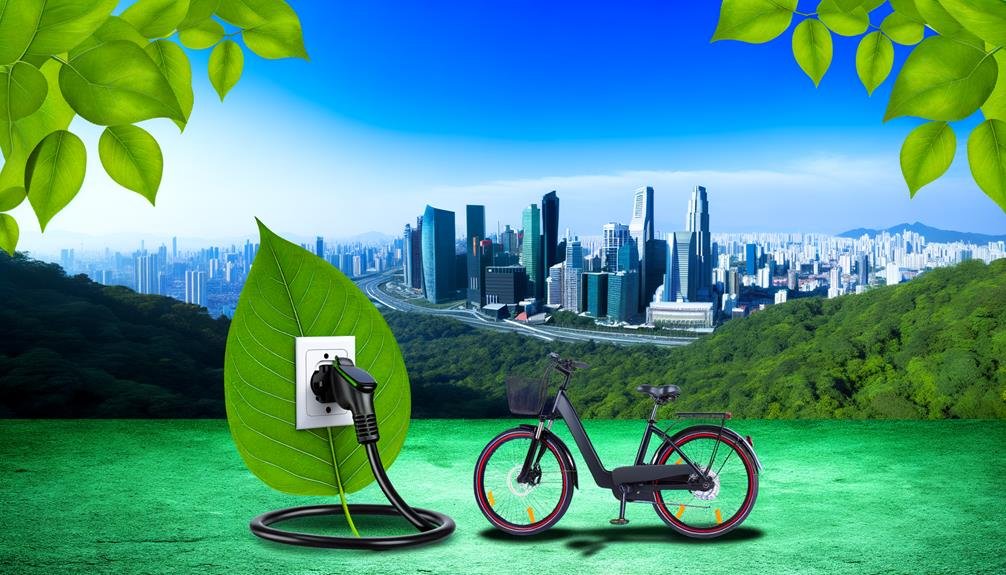Charles Miller is a veteran bike enthusiast with over 12 years of experience dealing with bikes as a mechanic. Despite immense love and expertise for...
'As the saying goes, 'change is the only constant in life' and this could not be more pertinent than in the world of transportation.
You've seen the growth of electric bikes and may be contemplating whether they're a better choice over traditional petrol bikes. Electric bikes offer a host of advantages such as cost-effectiveness, eco-friendliness, and easy maintenance. However, it's not all black and white. There are also aspects where petrol bikes may still hold the upper hand.
As we venture further into this discussion, you'll discover the intricate details that will help you make an informed decision.'
Key Takeaways
- Electric bikes are more eco-friendly and do not contribute to air pollution, unlike petrol bikes.
- While petrol bikes offer higher top speeds and acceleration, electric bikes have lower maintenance costs and are more cost-efficient in the long run.
- Electric bikes emit 50% less carbon dioxide compared to petrol bikes, making them a better choice for the environment.
- Electric bikes require less maintenance and upkeep, resulting in less time and money spent on servicing compared to petrol bikes.
Understanding Electric Bikes
In order to truly appreciate the many benefits of electric bikes, it's essential to understand their key features. This deep understanding requires you to consider the technology involved.
Electric bikes, or e-bikes, are a revolutionary mode of transportation. Each bike has an electric motor powered by a rechargeable battery, typically lithium-ion batteries, which drives the wheels, reducing the effort needed to pedal. This makes them an excellent choice for those wanting to maintain physical activity without overexerting themselves.
E-bikes contribute significantly to reducing air and noise pollution, since their electric motors don't produce exhaust emissions or loud noises. This makes them a more environment-friendly choice compared to petrol bikes. Additionally, electric bikes are cost-efficient, with lower operational and maintenance costs. Their rechargeable battery can be easily charged at home or work, providing convenience and extended riding time.
Safety is another substantial benefit. Electric bikes have a lower risk of accidents and skidding, making them a safer riding experience.
Hence, understanding these specifics can help you see why e-bikes are a great alternative for your daily commute.
Delving Into Petrol Bikes
While you might be accustomed to the roar of a petrol bike's engine, it's crucial to delve into the specifics of these traditional two-wheelers to better understand their impact on the environment and economics.
Petrol Bikes, in essence, run on fossil fuel, a resource that's not only finite but also a significant contributor to air pollution. This is a stark contrast to the zero-emission electric bikes.
From an economic standpoint, the maintenance costs of petrol bikes are a crucial consideration. The reality is, they command higher maintenance than their electric counterparts. The volatile nature of petrol prices could also weigh heavily on your pocket in the long run.
Nevertheless, petrol bikes offer a unique riding experience. They provide higher top speeds and, in some cases, superior acceleration. However, these benefits come with the trade-off of increased air and noise pollution.
In a world increasingly conscious of environmental health, the decision to stick with petrol bikes is a significant one. It's not just about personal preference anymore; it's about the wider implications of your choice.
Comparing Cost Efficiency

Let's dive into the cost efficiency of electric and petrol bikes, a factor that's pivotal in determining the long-term economic impact of your choice.
When considering Electric vs Petrol, you must account for purchase price, running costs, and maintenance.
So, how do they stack up?
Electric bikes are generally more expensive initially, but this upfront cost is offset by lower running costs. Electricity is cheaper than petrol, and charging an electric bike is far less costly than filling a petrol tank.
Petrol bikes, on the other hand, are cheaper to buy but have higher running costs due to fuel prices. Additionally, petrol bikes require regular maintenance, which can add up over time.
In the long run, the cost efficiency of an electric bike may be better due to lower running and maintenance costs. However, this largely depends on your usage patterns. For frequent, long-distance riders, a petrol bike might be more cost-effective.
Analyzing Environmental Impact
Switching gears to environmental impact, it's clear that choosing between electric and petrol bikes isn't just a matter of cost efficiency – it's also about the footprint you're leaving on our planet. As the desire for environmentally friendly alternatives grows, electric bikes are becoming increasingly popular.
Consider the carbon dioxide emissions. Electric bikes emit 50% less carbon compared to their petrol counterparts. This significantly reduces environmental pollution and your carbon footprint. In contrast, petrol bikes release harmful pollutants, exacerbating climate change and air quality issues.
Let's visualize this with a table:
| Bike Type | Carbon Dioxide Emissions |
|---|---|
| Electric | 50% less |
| Petrol | 100% |
| Bike Type | Environmental Pollution |
| Electric | Lower |
| Petrol | Higher |
Choosing an electric bike isn't just a personal decision, it's a collective effort to conserve our planet. Your choice can contribute to a cleaner, healthier environment, demonstrating that you're part of the solution. So, the next time you're considering a bike purchase, remember: it's not just about cost, but also the world you want to live in.
Maintenance and Upkeep Differences

Moving from the environmental aspects to the practicalities of owning a bike, consider the differences in maintenance and upkeep between electric and petrol bikes. The key lies in the mechanical parts. Your electric bike, with fewer moving parts, demands less maintenance than its petrol counterpart. Think fewer trips to the mechanic, less time spent on tune-ups, and fewer dollars spent on parts.
Delving further into the upkeep differences, consider the routine demands of petrol bikes. Oil changes, engine tune-ups, and exhaust system maintenance are all part of the package. It's a continuous cycle of upkeep that can be time-consuming and costly. In contrast, electric bikes require less frequent visits to the service station, reducing the hassle and cost of upkeep.
Moreover, the complexity of petrol engines adds another layer to the maintenance puzzle. These bikes require regular servicing, adding to your bill and your time commitment. Compare this to the electric bike's durable battery that needs less frequent replacement or maintenance.
In the 'electric bike vs petrol' debate, considering maintenance and upkeep differences can shift the balance. It's about more than just the ride; it's about the journey of ownership.
Assessing Speed and Range
In assessing speed and range, you'll find that while electric bikes generally offer lower top speeds and shorter ranges compared to petrol bikes, advancements in battery technology and motor efficiency are steadily closing this gap.
You'll notice that standard electric bikes, or 53 Bikes as some models are known, are often capped at speeds between 25-45 km/h, dependent on regulations and e-bike type. Their range typically falls between 30-120 miles per charge, with variables such as battery capacity, terrain, and rider weight factoring in.
Contrastingly, petrol bikes can exceed speeds of 60-70 mph and travel over 200 miles on a full tank. Yet, electric vehicles, including e-bikes, are gaining ground. As the charging infrastructure expands, electric bikes are becoming more viable for longer rides, not just short distances.
It's a thrilling time to be part of this evolution, whether you're an Electric bike or petrol enthusiast. As technology progresses, the gap in assessing speed and range between these two types of bikes is narrowing, promising an exciting future for all riders.
Urban Commuting Convenience

Consider the convenience of urban commuting with electric bikes.
You save time by zipping past traffic in bike lanes, and charging is a breeze at home or work.
With extended battery life and lower speeds for safety, isn't it time you analyzed the efficiency, commute time, and maintenance costs of e-bikes versus petrol vehicles?
E-Bike Versus Petrol Efficiency
When it comes to urban commuting convenience, your e-bike's efficiency drastically outshines that of a petrol-powered vehicle. This superiority is evident in three key areas:
- Fuel Efficiency: Your e-bike versus petrol efficiency debate ends here. Electric bikes use less energy per mile, saving you money on fuel costs compared to a petrol bike or scooter.
- Maintenance Costs: Electric scooters have fewer moving parts, reducing the chance of mechanical breakdown. You'll spend less on maintenance compared to a petrol scooter.
- Environmental Impact: E-bikes produce zero emissions, making them a greener choice.
Commute Time Comparison
How often have you found yourself stuck in heavy traffic on your petrol bike, wishing you could whizz past the gridlock? If that's a common scenario, consider getting an electric bike.
One reason why electric two-wheelers are much better than petrol bikes is the convenience they offer in urban commuting. Electric bikes can be ridden in bike lanes, allowing you to bypass traffic and navigate urban areas more efficiently. Plus, with their extended battery life, you won't need frequent refuelling stops. You can easily charge them at home or work.
Cost and Maintenance Analysis
Diving into the cost and maintenance analysis, you'll find that electric bikes are a more economical choice for urban commuting in the long run.
Unlike petrol bikes, electric bikes offer a significant edge over electric cost-wise.
- Insurance: Two wheeler insurance for electric bikes is often cheaper than for petrol bikes. The lower speed and power of electric bikes translates to reduced risk, resulting in lower premiums.
- Running Cost: Despite being expensive than petrol initially, electric bikes become cost-efficient over time due to the low cost of electricity.
- Maintenance: Electric bikes have fewer moving parts, reducing maintenance costs and time.
Having a bike insurance policy gives you peace of mind, but choosing an electric bike makes for a smarter, more cost-effective choice in the long run.
Frequently Asked Questions
Which Bikes Are Better Electric or Petrol?
You'll find electric bikes superior in efficiency, lower maintenance needs, and better battery sustainability. They beat petrol bikes in emission comparison. However, speed variations might favor petrol bikes. Consider these aspects and choose wisely.
What Are the Disadvantages of Ebikes?
You'll face several drawbacks with e-bikes: higher initial costs, limited range, battery lifespan concerns, performance variations, and maintenance issues. Also, inadequate charging infrastructure can be a real headache.
Are Electric Bikes Better Than Regular Bikes?
Yes, electric bikes often outshine regular bikes. They're affordable, easy to charge, boast long battery life, promote fitness, and are environmentally friendly. Speed-wise, they're slower, offering a safer ride. They're a great choice for you.
Is Electric Bike Good for Daily Use?
Absolutely, electric bikes are great for daily use. They offer charging convenience, extended battery lifespan, minimal maintenance needs, and an eco-friendly impact. Plus, they provide efficient commuting and cost advantages, making your daily rides effortless and sustainable.
Conclusion
In essence, you'll find electric bikes superior to petrol ones in cost efficiency, convenience, and health benefits.
They're less taxing on your pocket and the environment, requiring less upkeep and offering exercise opportunities.
Plus, they're a safer, more practical option for urban commuting.
So, while petrol bikes might have the edge in speed and range, electric bikes' benefits convincingly tip the scale in their favor.
It's clear, then, that e-bikes hold the upper hand.

Charles Miller is a veteran bike enthusiast with over 12 years of experience dealing with bikes as a mechanic. Despite immense love and expertise for his Tacoma, he rides his Trek Ebike more. Anytime you meet him, you’ll either hear him talking about Bikes, or writing about all things bikes and cars on this blog.
More Posts


